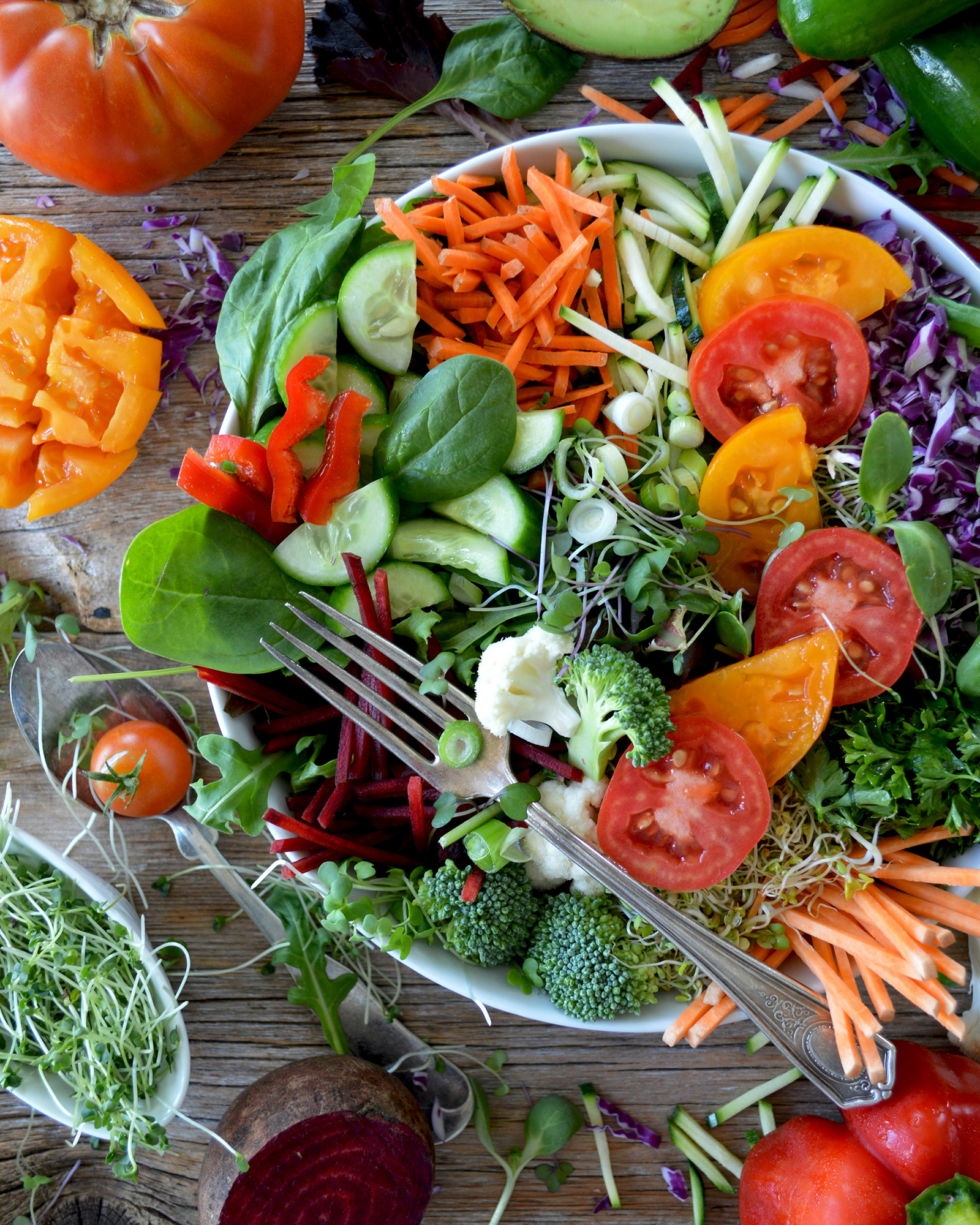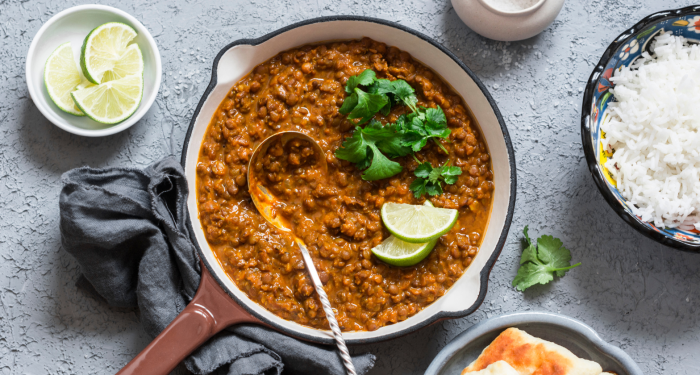You may have heard the terms, but what do they mean exactly? And how do they differ?
The term plant-based is becoming more and more popular in the food product scene. But it’s thrown around with little restriction as to what it actually means. What’s more, there are no standardized regulations on the use of the term. And even if you do a quick internet search, you are likely to leave even more perplexed than when you started. So, we’re here to clear up the confusion once and for all. What is the difference between vegan and plant-based? Read on to learn more.
What Does a Vegan Eat?
A vegan eats fruits, veggies, grains, beans, nuts, seeds, and more. If it comes from plants, then it’s good to go on a vegan’s plate. This means no meat, dairy, eggs, or honey. Instead, think things like pizza, spaghetti, burritos, and avo toast, all made with plant-based ingredients. We’re talking pizza with vegan cheese, spaghetti with homemade lentil and walnut “meatballs,” black bean and rice burritos, and more.
What Does It Mean If a Food Is Plant-Based?
If a food is plant-based, it is derived from plant ingredients. This means nothing from an animal. We’re talking no eggs, dairy, honey, or meat of any kind. Plant-based cream soups will use plant-based milk instead of milk from a cow. Plant-based cookies rely on vegan butter. And as with a vegan frozen pizza, a plant-based pizza will be topped with vegan cheese. Plant-based foods, essentially, are vegan foods.
What Is the Difference Between Vegan, Plant-Based, and Whole Food Plant-Based?
While the terms vegan, plant-based, and whole food plant-based (WFPB) seem similar, they’re not quite the same thing. Being vegan is all about cutting out animal products—meat, dairy, eggs, and honey—often for ethical or environmental reasons. But it doesn’t always mean healthy. You could eat nothing but Oreos and fries and still be vegan. And, as we’ve discussed, plant-based foods also eliminate animal ingredients. But they, too, can be devoid of nutrition. The term WFPB, on the other hand, is more about what you do eat rather than what you don’t. Think fruits, veggies, grains, legumes, and nuts, all in their most natural state. A WFPB diet is kind of like veganism’s health-conscious cousin. But, again, someone could eat plant-based and not be whole food. As long as the ingredients are from plants, they count as plant-based, even if they are not in their most natural state.
So, now that we know what vegan, plant-based, and WFPB mean, let’s talk about the differences. And what are some problems that can arise from the use of the term plant-based?

Courtesy of Nadine Primeau/Unsplash
Why Are Some Plant-Based Foods Not Vegan?
Brands want to promote plant-based products because more people are trying to eat healthier nowadays. Some also choose plant-based foods because they care about the environment or they want more options beyond meat and dairy. Plants are trending and companies see the opportunity as a chance to stay relevant, attract new customers, and show that they care about sustainability. Unfortunately, many of these companies are labeling food as plant-based even when the item contains animal ingredients, such as eggs or cheese. These ingredients are not from plants and should not be promoted as such. However, the brands are eager to jump on the plant-based trend to gain more sales. Think of it as a plant-based form of greenwashing. Which is what it is.
So, What Is the Difference Between Vegan and Plant-Based?
So, with all of that said, what is the difference between vegan and plant-based? The short answer is that they mean the same thing. The terms are interchangeable. The longer answer is that as a consumer, you have to be careful when shopping. Why? Because many brands want to benefit from the plant-based trend, even though their products contain animal ingredients. And note that we are only talking about food here. Many vegans will expand their compassionate choices to include clothing, beauty products, and other lifestyle factors, eliminating animal ingredients from all areas of their lives.
Unfortunately, when it comes to food, there are no current standardized regulations for using the terms vegan or plant-based. Labels can state what they like without regard to consequences. Claims that a product is vegan, though, are generally accurate. The term has been around since the early 1940s and is established as a concept. However, the term plant-based was launched only in the 1980s through the research of T. Colin Campbell, biochemist and author of The China Study. The meaning can be less clear and has gone through many iterations by companies seeking to capitalize on the health-conscious movement. So, long answer short, vegan and plant-based mean the same thing. However, many companies will falsely use the term plant-based, making it critical that you check ingredient labels when shopping.
Upgrade Your Kitchen with the Vegan Pantry Essentials Guide
Whether you're vegan, plant-based, or just plant-curious, stocking your kitchen with the right ingredients makes all the difference. That’s where our Vegan Pantry Essentials Guide comes in! Packed with expert tips and curated product recommendations, this digital download takes the guesswork out of grocery shopping. From dairy-free swaps to go-to protein sources, we break down the must-haves that help you whip up delicious plant-based meals with ease.
Ready to revamp your kitchen and simplify mealtime? The Vegan Pantry Essentials Guide is your ultimate resource for building a well-rounded, cruelty-free pantry. Whether you're a seasoned home cook or new to the lifestyle, this guide empowers you to cook confidently and eat consciously. Download your copy today from the VegOut shop and keep it handy for your next grocery run!
What’s Your Plant-Powered Archetype?
Ever wonder what your everyday habits say about your deeper purpose—and how they ripple out to impact the planet?
This 90-second quiz reveals the plant-powered role you’re here to play, and the tiny shift that makes it even more powerful.
12 fun questions. Instant results. Surprisingly accurate.













